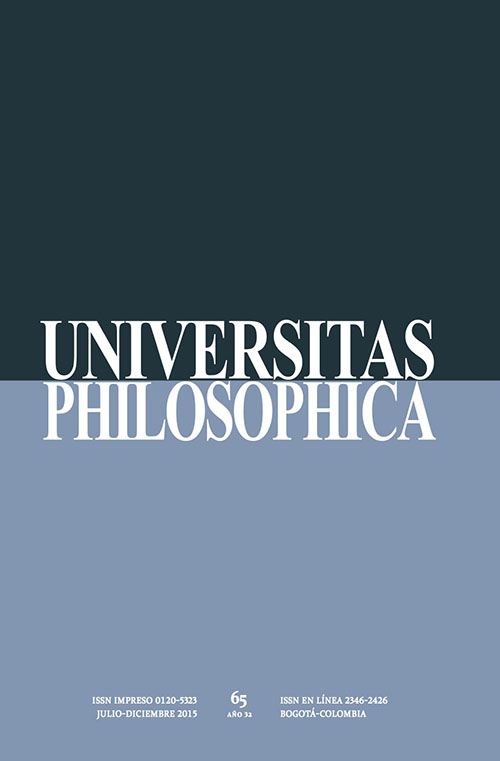Abstract
This article presents an archaeological analysis of some of the discourses and practices that played a decisive role in the effectuation of the Conquest of America and the establishment of a political order based on a racial prejudice and domination. A political order that was, in consequence, extremely exclusionary and violent. This research is based (i) on the concepts of biopolitics and anthropological machine created by Giorgio Agamben, as well as on the relationship that exists between them and the communities founded on identitarian principles; (ii) the researches of post-colonial philosophers; and (iii) Carl Schmit’s writings on International Law. The analysis of the Aristotelian-Thomistic conception of the human being, the geographical division of the World created from Europe, and the political treaties concluded between the emerging European States during fifteenth and sixteenth centuries, allows me to propose the Conquest of America as a paradigmatic case of this form of power that has characterized Western politics: biopolitics.
This journal is registered under a Creative Commons Attribution 4.0 International Public License. Thus, this work may be reproduced, distributed, and publicly shared in digital format, as long as the names of the authors and Pontificia Universidad Javeriana are acknowledged. Others are allowed to quote, adapt, transform, auto-archive, republish, and create based on this material, for any purpose (even commercial ones), provided the authorship is duly acknowledged, a link to the original work is provided, and it is specified if changes have been made. Pontificia Universidad Javeriana does not hold the rights of published works and the authors are solely responsible for the contents of their works; they keep the moral, intellectual, privacy, and publicity rights.
Approving the intervention of the work (review, copy-editing, translation, layout) and the following outreach, are granted through an use license and not through an assignment of rights. This means the journal and Pontificia Universidad Javeriana cannot be held responsible for any ethical malpractice by the authors. As a consequence of the protection granted by the use license, the journal is not required to publish recantations or modify information already published, unless the errata stems from the editorial management process. Publishing contents in this journal does not generate royalties for contributors.


